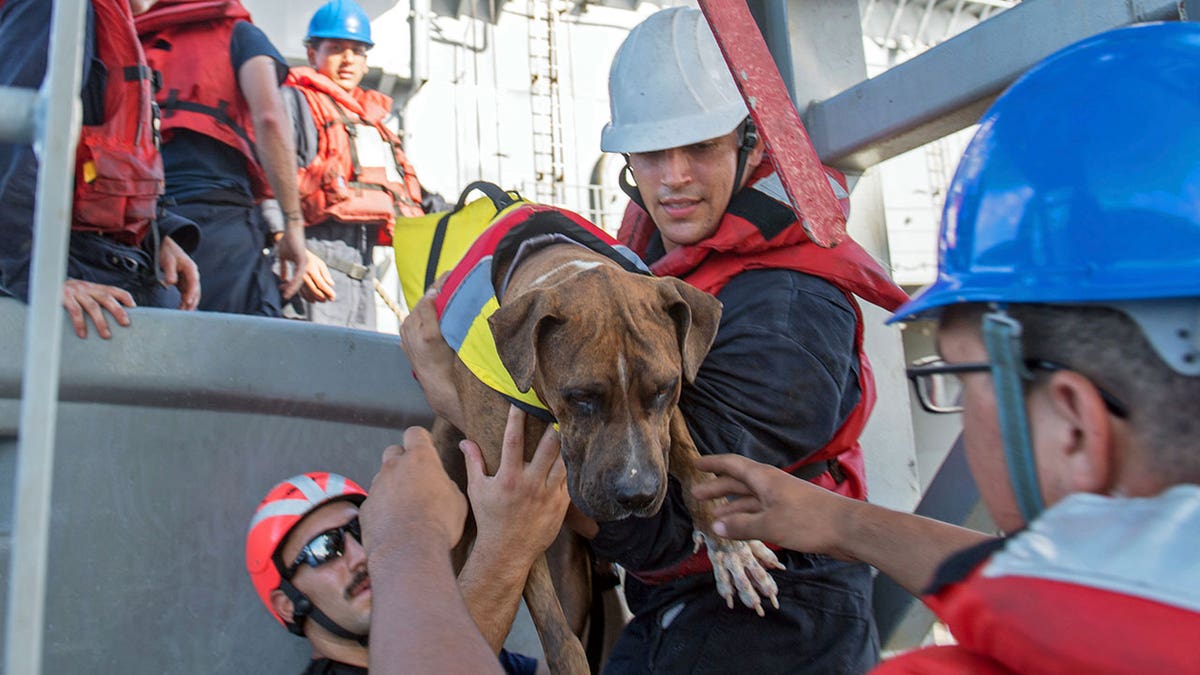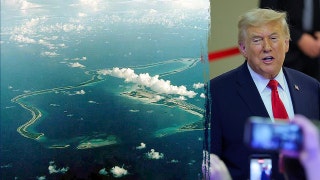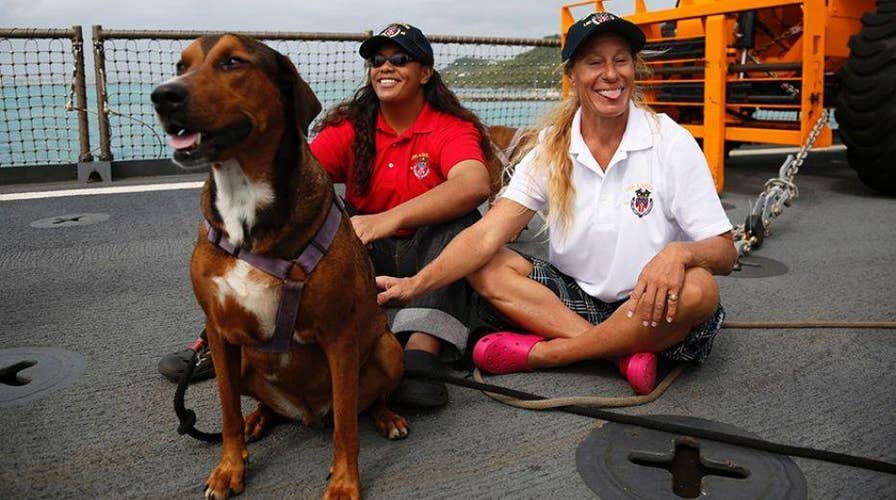Sailors' lost at sea tale is now being called into question
Inconsistencies surface in Tasha Fuiava and Jennifer Appel's claim that they spent months at sea after a tropical storm knocked them off course on journey from Hawaii to Tahiti.
Two Hawaii women’s tale of survival in the Pacific Ocean appeared to be sinking Wednesday as more Coast Guard officials, sailing experts and scientists emerged to poke holes in the sensational story.
Among the claims that have been cast into doubt are a tiger shark attack that allegedly lasted more than six hours and a call one of the women’s mothers made to the Coast Guard, in addition to doubts about the condition of their ship before setting off on the voyage.
"I'm shocked they were going to Tahiti," Desiree Hattori, who has known one of the women, Jennifer Appel, for years, told Hawaii News Now. "Her boat wasn't in the best shape."
They were picked up by the U.S. Navy near Japan last week after being spotted and towed by a Taiwanese fishing vessel.
Appel and Tasha Fuiava’s description of 20- to 30-foot tiger sharks ramming their boat in a coordinated attack for more than six hours also appeared to draw scrutiny, as scientists who study sharks told The Associated Press that sort of behavior has never been recorded and that tiger sharks grow to only about 17 feet in length.
University of Hawaii professor and veteran shark researcher Kim Holland has never heard of any kind of shark repeatedly attacking a boat hull throughout a night. He also said tiger sharks never jump out of the water and do not make coordinated attacks.
Sometimes sharks will congregate around a food source like a whale carcass, but Holland said that was unlikely in this case "if there's nothing there to attract the animals. I mean this is just an inert boat hull."
At some point, Appel joined the Hawai'i Actors Network, noting on the group's website that she has "been known to do almost any skydiving or motorcycle stunt — camera optional." Through the group, she found work as an extra in the former TV series "Off the Map" and the former sitcom "Cougar Town," appearing in that show in a pink bikini in the background of a season finale. A call to the actors' network by The Associated Press was not returned.
Appel's mother, Joyce, also told The Associated Press she called the Coast Guard to report her daughter missing a week and a half after they departed for what they believed would be an 18-day trip to Tahiti.

Sailors help Zeus, one of two dogs who were accompanying two mariners who were aided by the amphibious dock landing ship USS Ashland. (U.S. Navy photo by Mass Communication Specialist 3rd Class Jonathan Clay)
However, the Coast Guard never got a call from the elder Appel. They received a call from a "family friend" they identified as a male on May 19, still several days before the women expected to arrive.
The women said they filed a float plan listing their course and other details with some friends and relatives. However, in an interview with the Coast Guard, the women said they had filed no float plan.
Hawaii sailing experts say the trip itself was a bad idea.
HOLES EMERGE IN HAWAII WOMEN'S TALE OF SURVIVAL IN THE PACIFIC
Mike Michelwait, owner of the Honolulu Sailing Company, a sailing school and charter company, has sailed the route from Hawaii to Tahiti several times. He said the trip would normally take about 17 days with sailors who could stay on course.
But, Michelwait said, he would not take such a trip with any less than three experienced sailors.
"There's only two of them on board, and it's a 50-foot boat," he said. "That's a lot of boat to handle."
Coast Guard officials told The Associated Press on Monday that the two women had an emergency beacon (EPIRB), but never turned it on because they did not fear for their lives. If they had, rescue would have been headed their way in a matter of minutes.
HAWAII WOMEN SAY THEY ARE PLANNING THEIR NEXT BOATING VACATION
The women said Tuesday that they did not use the beacon because they never felt they were in immediate danger, yet they have been quoted as saying they did not think they would survive another day. Furthermore, the pair said they had been flagging vessels and sending distress signals for at least 98 days.
"We knew we weren't going to make it," Appel said. "So that's when we started making distress calls."
A Fox News reader with a connection to Appel's family provided email correspondence with Coast Guard officials based in Hawaii, who said that on May 5, Appel reported she lost her satellite phone.
“Since Jennifer is well equipped with emergency equipment we are confident that if she ran into a distress situation she would activate her EPIRB and we would get the notification quickly,” the Joint Rescue Coordination Center Honolulu wrote to the reader in a May 19 email.
The two women also insisted they got caught in a storm that was whipping up 30-foot waves and near hurricane-force winds on the night they set sail, despite records that show no severe weather in the area at the time.
NASA satellite images for the days around their departure show no organized storms in the region where they planned to travel.
There was a tropical cyclone, but it was near Fiji, thousands of miles west of Hawaii. Localized squalls are known to pop up, but a storm lasting three days would have been visible on satellite and would have elicited mass warnings to the public to brace for the weather.
"We got into a Force 11 storm, and it lasted for two nights and three days," Appel said Tuesday.
The Associated Press contributed to this report.









































